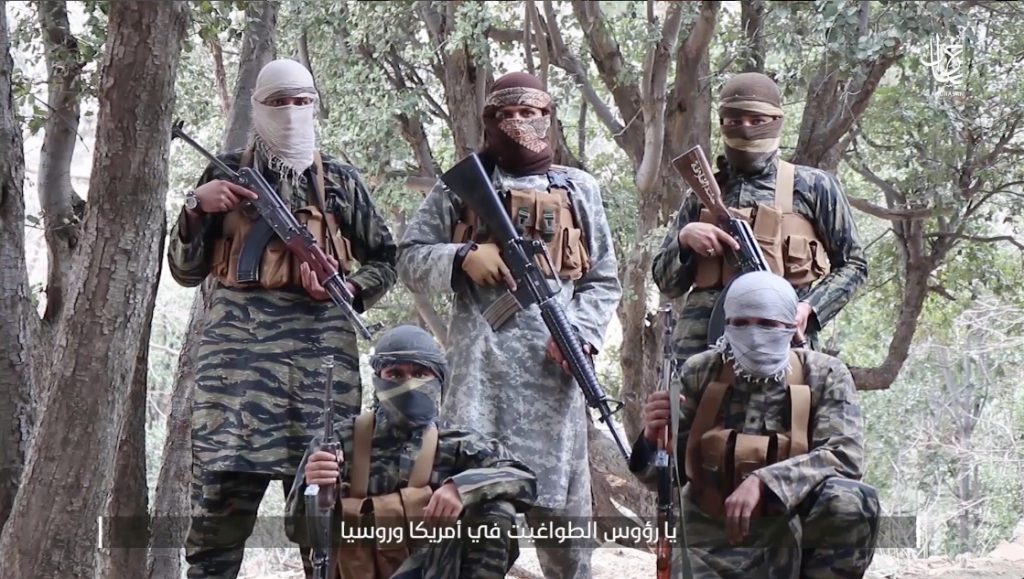
The U.S. Treasury Department has announced a new round of counterterrorism designations targeting the Islamic State’s support network. Among those sanctioned are two brothers — Ismail and Ahmet Bayaltun — who are based in Turkey and have acted as procurement agents for the group.
The U.S government’s new designations are the latest in a series identifying Islamic State front companies, facilitators and other personnel in Turkey.
Ismail Bayaltun owns and controls a business named ACL Ithalat Ihracat, which is based in Sanliurfa, a city in southern Turkey that is not far from the Syrian border. Through that company, the Bayaltun brothers have “provided support to ISIS fighters,” including “equipment” in 2015 and 2017.
Ahmet is identified as “an ISIS procurement agent,” but the operation apparently involves more than just the pair of brothers. U.S. Treasury refers to multiple “siblings” who were working with Ismail Bayaltun as of “late 2018” to provide “material support to ISIS.”
Another business based in Sanliurfa, Al-Sultan Money Transfer Company, has moved money for the would-be caliphate. Treasury says that earlier this year an unidentified “ISIS associate identified Al-Sultan as an exchange that could be used [to] avoid scrutiny when transferring funds.”
Treasury did not specifically link Al-Sultan to the Bayaltun brothers. The identifying information does indicate that the company trades in jewelry and gold, both of which can be difficult to track.
A third business included in today’s designation package, Sahloul Money Exchange Company, is based in Istanbul. It has “held deposits from ISIS-linked individuals seeking transport out of Syria to Turkey” and “transferred thousands of dollars to ISIS operatives in Turkey.” Sahloul has also “facilitated the transfer of foreign donations to ISIS’s then-headquarters in Mosul, Iraq.”
Earlier this year, the U.S. government designated members of the Rawi Network operating in Turkey. The Rawi Network originally helped Saddam Hussein’s regime evade sanctions, but became a core financial apparatus for the Islamic State.
In 2017, the Treasury Department said that another jihadist, Salim Mustafa Muhammad al-Mansur, had relocated to Turkey after serving as the Islamic State’s “finance emir” in Mosul, Iraq. Other facilitators in Turkey have been officially sanctioned as well.
The American sanctions, as well as other evidence, raise questions about Turkey’s permissive environment. While the Turkish government reportedly cracks down on Islamic State networks from time to time, the country continues to host key parts of the group’s infrastructure.
US designates charity operating as a front for ISIS-K
Treasury also announced today that it has added Nejaat Social Welfare Organization, and two of its leaders, to the U.S. designations list. Nejaat has allegedly operated as a front for the Islamic State’s Khorasan branch (ISIS-K), which is based in Afghanistan and has tentacles throughout the region.
In 2016, Nejaat sponsored a meeting to support “Salafi solidarity,” but Treasury says it was really a “cover” for “Afghan leaders of ISIS-K” to hold “planning meetings.” The U.S. government’s summary implies that ISIS-K has garnered some support within Afghanistan’s Salafi community, as Nejaat executives joined “prominent Salafi leaders” in organizing the meeting.
One of those Nejaat officials is Rohullah Wakil, a native Afghan who has been added to the terrorist designation list.
ISIS-K has used Nejaat, which has a network stretching into the Gulf, as “cover company to facilitate the transfer of funds” and to “support” the jihadists’ “activities.”
In addition to Wakil, Treasury identifies another man, Sayed Habib Ahmad Khan, as Nejaat’s “director.” Khan, an “ISIS-K facilitator,” is also a native Afghan, but he is “located in Kuwait.”
One unnamed “ISIS-K recruiter” who worked for Nejaat recruited fighters in the Afghan capital of Kabul and “arranged for their travel to Nangarhar Province,” according to Treasury.
ISIS-K has had a foothold in Nangarhar for several years. The Taliban and U.S.-backed Afghan forces have both fought against the so-called caliphate’s loyalists in the eastern Afghan province.
 Eurasia Press & News
Eurasia Press & News



